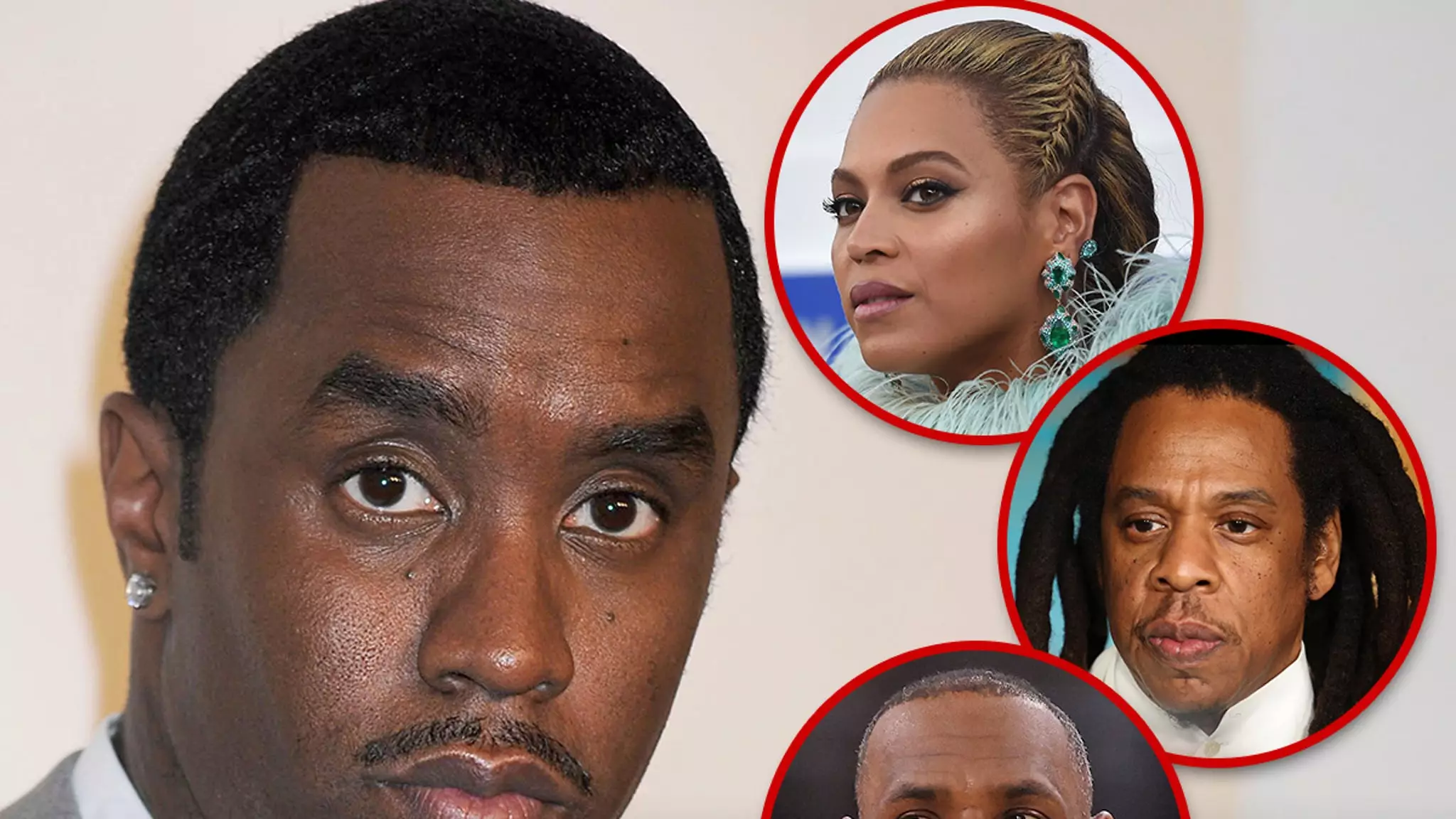The recent lawsuit against Sean Combs, widely known as Diddy, has sent shockwaves through Hollywood and beyond. The allegations, made by Florida man Joseph Manzaro, paint a disturbing picture of a wild party that devolved into a horrifying display of humiliation and abuse. Manzaro claims he was the victim of sexual assault, drugging, and human trafficking during what he describes as a “freak-off” party in Miami in April 2015. This case brings to light not only the potential criminal behavior of high-profile celebrities but also the deeper issues surrounding consent, power dynamics, and the culture of silence that often protects perpetrators.
A Host of A-List Witnesses and the Allegation Narratives
Among the many outrageous claims, Manzaro alleges that notable figures including Jay-Z, Beyoncé, LeBron James, and Gloria Estefan were present during the night of his alleged humiliation. This aspect raises essential concerns about complicity and accountability in high-stakes social environments. The accusation that these celebrities witnessed such dehumanizing acts but failed to intervene speaks volumes about the challenges faced by victims of sexual violence. The supposed passivity of onlookers can contribute to the perpetuation of abuse, creating an environment where individuals of power feel invincible and unaccountable.
Manzaro recounts a harrowing account where he was reportedly drugged and transported into a situation reminiscent of a nightmare. The description of his being “paraded” around like a trophy raises significant ethical questions about the treatment of individuals at parties that blur lines of morality and legality. Furthermore, this narrative intersects disturbingly with the theme of “snitching” in street culture, where the consequences for speaking out can lead to extreme repercussions, subliminally endorsing a brutal code of silence.
The Role of Fame and Influence
What’s particularly chilling about this case is the influence of fame on the dynamics of abuse. The power that these celebrities hold cannot be underestimated. Jay-Z, being a pivotal figure in the music industry, had a speaking engagement in New York during the same timeframe, which raises questions about the credibility of Manzaro’s timeline. Contrary to Manzaro’s assertions, this discrepancy signifies an urgent need to exercise skepticism about the claims being made without concrete evidence. The allure of celebrity culture often overshadows the responsibilities these individuals have, whether in their actions or their inactions.
The fact that high-profile figures were reportedly present at this party amplifies the weight of Manzaro’s allegations. Gloria Estefan’s alleged attempts to call for help while Emilio Estefan silenced her speaks to the daunting obstacles faced by those who try to intervene on behalf of victims. The narrative creates an unsettling echo about how society perpetuates norms that overlook or even endorse predatory behavior under the guise of entertainment and celebration.
Legal Implications and the Fight Against Trauma
Manzaro’s lawsuit is laden with severe claims, including human trafficking, and seeks significant damages from Diddy and others involved. The potential legal consequences for Diddy and his associates could stir conversations not just about justice for victims but about the wider implications of celebrity culture that seemingly exists outside the bounds of legal and moral scrutiny. Often, the stakes involve not only financial consequences but also reputational damage, which can have a profound effect on how these cases are perceived.
As public awareness of trauma, consent, and abusive power dynamics continues to grow, it is imperative to approach such allegations with a critical eye. While Manzaro’s narrative is harrowing, the veracity of his claims must be substantiated through evidence. Society must grapple with the complexities surrounding fame, trauma, and the inherent struggles of victims seeking vindication in a legal system that frequently falls short.
Behind the Facade of Celebrity Parties
The narrative emerging from this lawsuit also exposes broader societal issues, such as the normalization of toxic behavior at celebrity gatherings. The so-called “freak-offs” evoke an atmosphere that blurs the lines between outrageous fun and unacceptable behavior, creating a false dichotomy where privilege can excuse heinous actions. This mindset, if left unchecked, can undermine the progress being made in promoting respect for personal autonomy and addressing the nuances of consent.
Additionally, Manzaro’s allegations bring to light the societal tendency to prioritize entertainment over ethical standards. Celebrities, in their quest for an extravagant lifestyle, often engage in behavior that can harm others without fear of real-world consequences. This culture of indulgence can lead to a warped notion of reality for those involved, where the experience of violence and degradation can be dismissed as mere party antics.
As this story continues to develop, it will be crucial to focus not merely on the details of the claims but on the impact they may have on conversations about consent, power dynamics, and accountability in the world of celebrity culture. As the individuals involved wade through the legal and social ramifications, society must confront the uncomfortable truths about the realities that lurk behind both glamour and violence.

